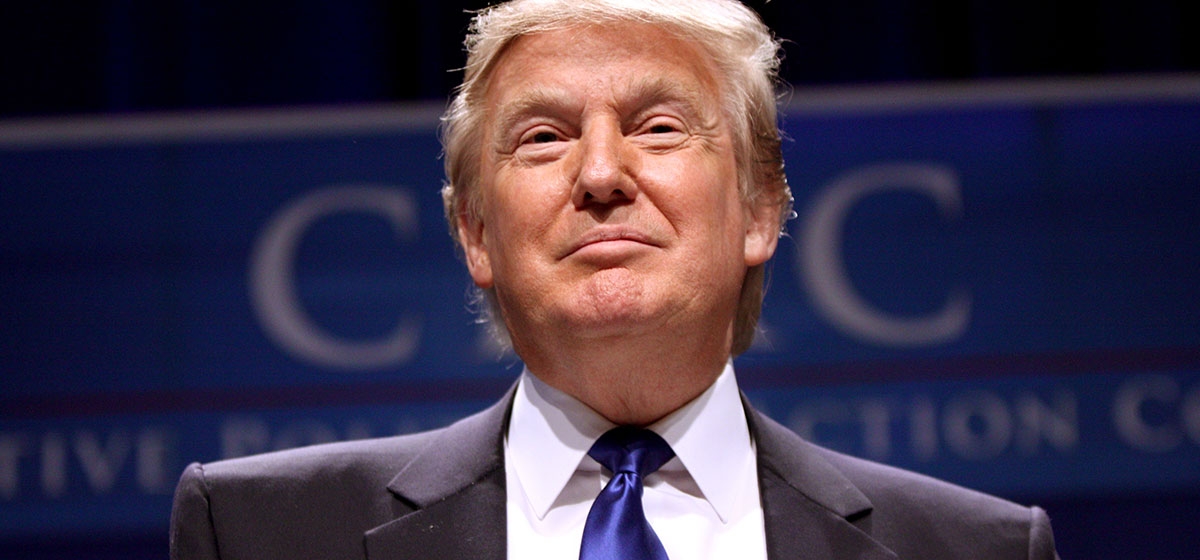On the (Inevitable) Donald

Right-thinking person that I am, I’ve spent my adult life in broad agreement with elite American opinion on all the major issues and movements of the age: opposition to the War in Vietnam, support for the Civil Rights Movement, gender equity, reproductive rights, immigration reform, environmentalism, equality for gays, lesbians, and bisexuals, etc., etc. Yet, whenever I read criticisms of people who aren’t fully on board with any of these issues, I find myself getting irritated. Why is that, I’ve often wondered?
But it wasn’t until The Donald Phenomenon came along that the issue crystalized itself for me. Like most people, I was simultaneously amused and horrified by the man and initially I dismissed him as a kind of bad joke. Instead of fading away, however, Trump continued to rise in the polls. Still, like all right-thinking people, I assumed he was appealing to a narrow fringe of the Republican right, which has outsized influence in the primaries but which could never actually elect anyone.
I continued to hold tight to these fantasies right up to the Pennsylvania primary election. To my astonishment, Trump took 57% of the vote in my home state. More remarkable, in a reliably blue state he polled nearly as many votes as Hillary – in fact, he clobbered Sanders and got more votes than Mitt Romney did in 2012. As everyone knows, Trump went on to win the Republican nomination.
For a considerable period of time I could hardly believe that Trump was the nominee and could conceivably become President. More recently, however, Trump’s chances seem to have faded – the New York Times recently suggested that Clinton had a 90% chance of winning. You can’t call a candidate like Trump out until the election is over, but as of this writing it looks like Clinton will get the nod.
Now that I don’t have to worry so much about a Trump presidency – probably Trump himself doesn’t know what that might bring – I’ve had the leisure to think about what propelled him this far. And as I thought about it I found myself becoming increasingly annoyed by the lurid, self-righteous criticisms of him that appeared literally everywhere in the media, left, right and center. The nonsense spouted by Trump, it occurred to me, was actually not as idiotic as the nonsense spouted by liberals and conservatives about him. Consider just a few examples:
Trump supporters are “garbage.” Tim Egan in the NY Times.
“The end of the Republic.” Martin Wolfe in the Financial Times.
“The man is evil.” Stuart Stevens (Romney campaign strategist).
Trump voters are “a rabble.” Tim Egan (again).
Trump is “an unmitigated disaster.” Neocon Eliot Cohen.
Trump voters are “suckers.” Mitt Romney
Trump supporters are “morally tainted.” Cokie Roberts
Trump is a “traitor.” Tim Egan (yet again, the man is clearly not taking his meds).
One is reminded of what Claire Booth Luce had to say about an earlier self-righteous elite – the Victorian upper classes: “[T]hey are so insolent, so sure of themselves, so smug, that I feel as though it would do them good … to be beaten.”
But wait, you may be thinking. If I think Trump is nothing more than “amusing and horrifying,” why should I object to whatever elite critics want to say about him? The problem with the elites is not exactly that they are wrong about Trump. Instead, it has to do with these phenomena: the bigoted language the elites use with respect to Trump and his supporters, which reflects bigoted thinking about the people who are voting for him, and the fact that the elites are arrogantly – and willfully – clueless about why he is so popular.
The revolt of working people, it occurred to me, has resulted in important part because it has been those people, and those people only, who have borne the burden of the push for inclusiveness that characterizes our age and that we are all – and rightly – so proud of. The wonderful issues and movements I listed in my opening paragraph, above, don’t come without costs, some of which are considerable. Unfortunately, those costs haven’t been borne evenly across American society.
In other words, the elites are right about Trump at the same time that they (we) are horribly wrong about him and what he represents. Trump is a microcosmic example of a much more macroscopic problem: elites can be right and terribly wrong at the same time, precisely because they – we – have completely insulated ourselves from the consequences of the enlightened policies we advocate.
Trump may lose the election, but the impulse behind the broad support for his candidacy won’t go down with him. Until we understand why people support a candidate like Trump, and do something about it, candidates like Trump will continue to arise. We’ll look further into this interesting phenomenon next Friday.





